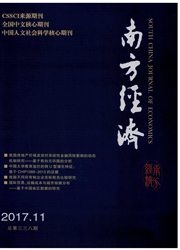
欢迎您!东篱公司
退出

 中文摘要:
中文摘要:
本文首先运用Ravallion基本需求成本法测算了中国转型时期(1986~2000年)城镇贫困线水平,并用Foster系列贫困指数测度了转型期间城镇贫困的广度、深度和强度。结果表明,从1986年到2000年,城镇贫困的广度、深度和强度都呈现总体上升的趋势。最后,我们实证分析认为,城镇贫困状况恶化的原因与转型期间一系列重大政策改革相联系,即城镇居民收入不平等、失业率、住房支出、教育支出和医疗支出上升是城镇贫困恶化的主要因素。
 英文摘要:
英文摘要:
Based on the Ravallion cost of basic needs method, the article measures the poverty lines of urban during China's economic transition(1986-2000), and measures the extension and intensity of urban poverty using Foster poverty index. As result, we find the trends of extension and intensity of urban poverty rising. At last, we think the main cause of urban poverty due to series policies reform during economic transition, such as income inequality, unemployment, housing expenditure, education expenditure, and medical expenditure.
 同期刊论文项目
同期刊论文项目
 同项目期刊论文
同项目期刊论文
 期刊信息
期刊信息
